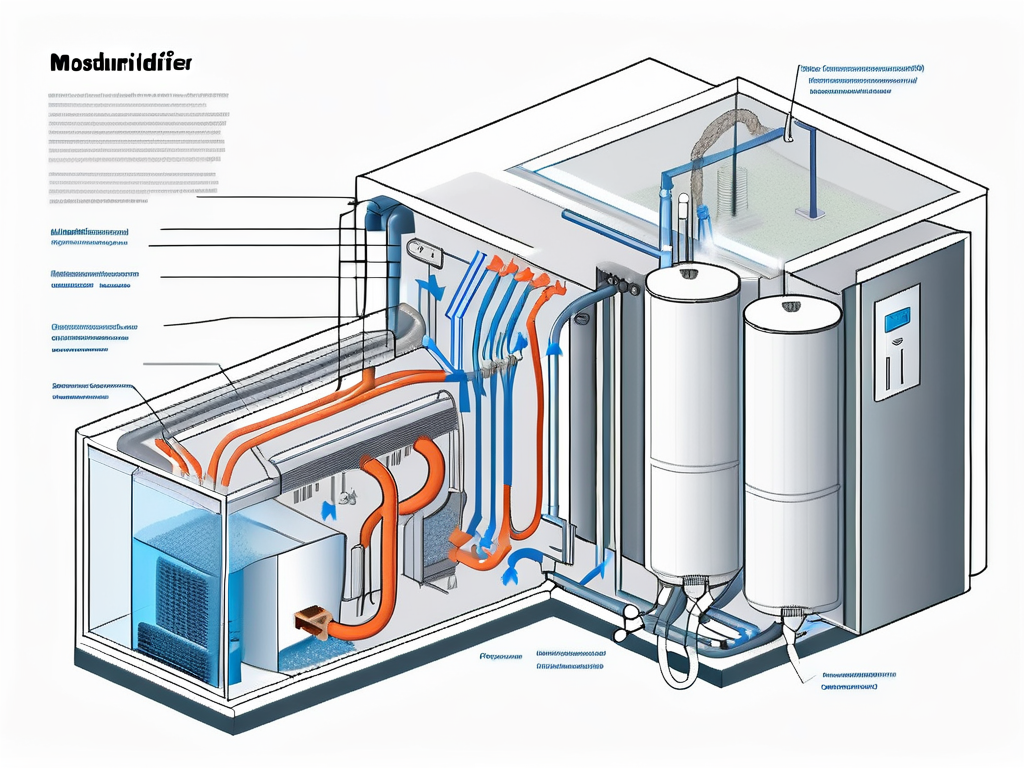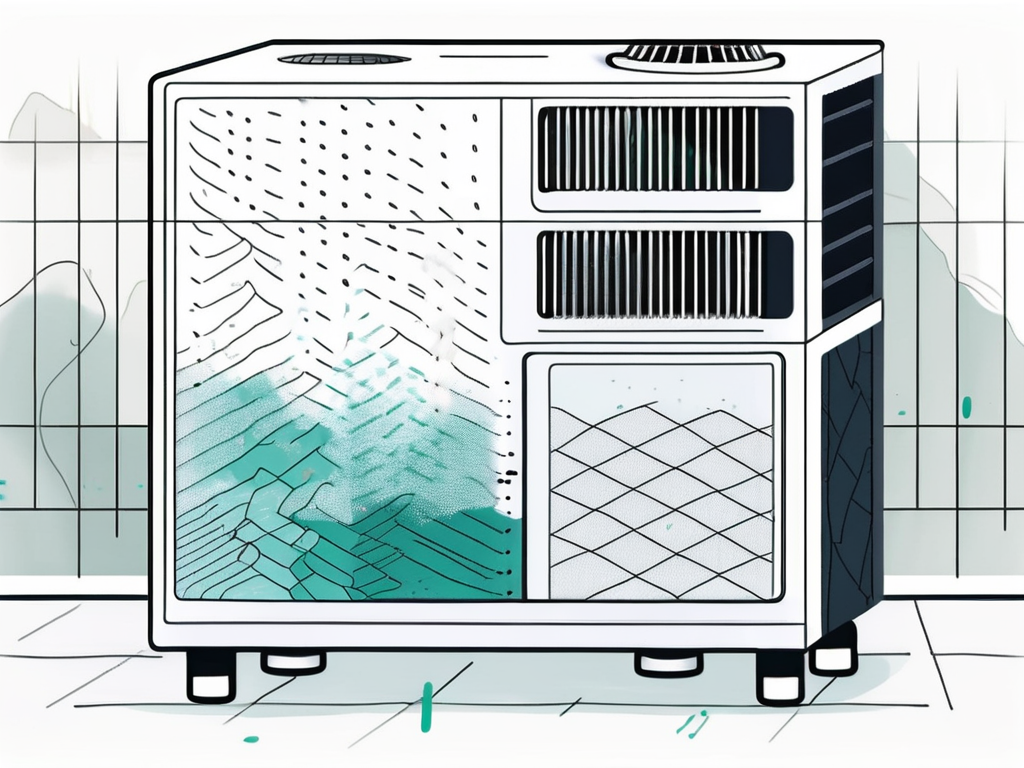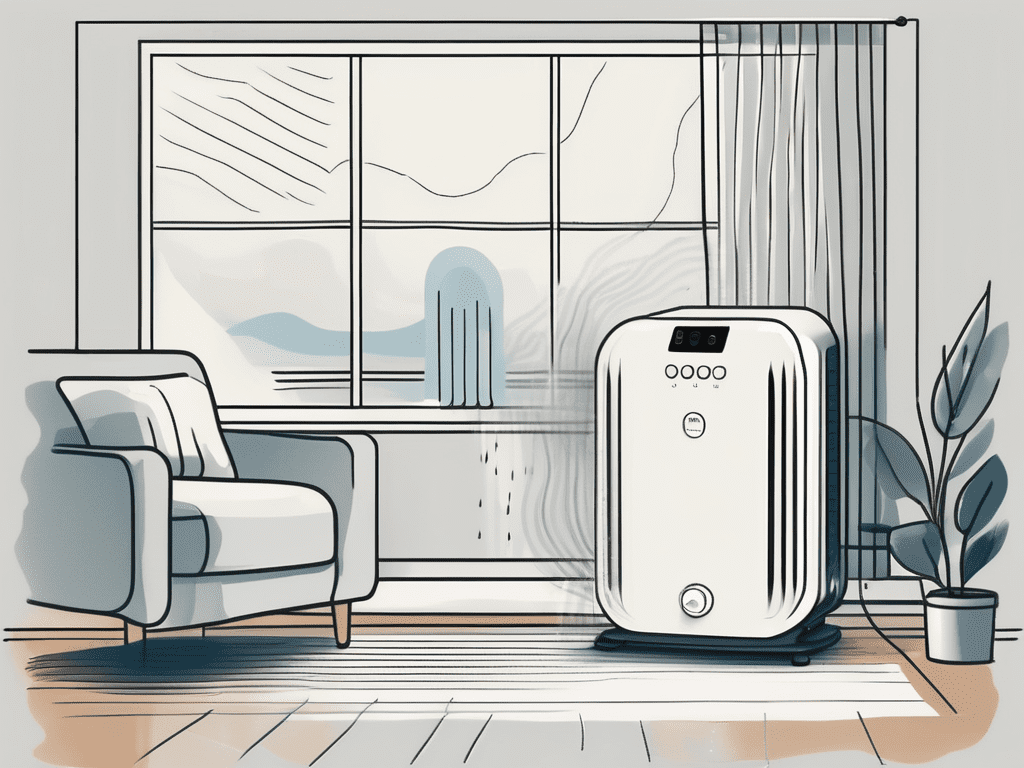A dehumidifier is a device that reduces and maintains the level of humidity in the air, usually for health or comfort reasons, or to eliminate musty odor and to prevent the growth of mildew. It is an essential tool in the process of humidity control, a critical factor in maintaining a healthy and comfortable indoor environment.
Humidity control is the process of regulating the moisture level in the air, which can be crucial for both residential and commercial settings. Too much humidity can cause condensation on windows, wet stains on walls and ceilings, a musty smell, and a host of other problems. On the other hand, too little humidity can lead to dry skin and respiratory problems. Hence, maintaining the right level of humidity is essential.
How Dehumidifiers Work
Dehumidifiers work by drawing moist air over a refrigerated coil with a fan. The cold coil of the dehumidifier condenses the moisture in the air into water, which is then collected in a removable container. The dehumidifier then reheats the air and exhausts it back into the room, dry and warm.

This process continues until the sensor detects that the desired humidity level has been reached. At this point, the dehumidifier will cycle on and off to maintain this level, ensuring that your environment remains at the optimal humidity level for your comfort and health.
Types of Dehumidifiers
There are several types of dehumidifiers available on the market, each designed to address specific humidity control needs. The most common types include refrigerant (or compressor) dehumidifiers, desiccant dehumidifiers, and whole-house dehumidifiers.
Refrigerant dehumidifiers are the most common type and work by cooling the air to condense out the moisture. Desiccant dehumidifiers use a chemical to absorb the moisture from the air. Whole-house dehumidifiers are installed directly into your home’s heating and cooling system, providing humidity control for the entire house.
Choosing the Right Dehumidifier
When choosing a dehumidifier, it’s important to consider the size of the space you need to dehumidify, the average humidity level in your area, and the specific needs of your home or business. For example, if you live in a particularly humid climate or have a large space to dehumidify, you may need a more powerful, whole-house dehumidifier.
Other factors to consider include the dehumidifier’s energy efficiency, noise level, and whether it has features like a built-in hygrometer to measure humidity levels, or an automatic shut-off function for when the desired humidity level is reached.
Benefits of Using a Dehumidifier
Using a dehumidifier can have several benefits for your health and your home. By reducing humidity levels, dehumidifiers can help prevent the growth of mold and mildew, which can lead to a variety of health problems, including allergies and respiratory issues.

Dehumidifiers can also help to reduce condensation, which can cause structural damage to your home over time. Furthermore, by creating a more comfortable environment, dehumidifiers can help to reduce the need for air conditioning, potentially saving you money on energy costs.
Health Benefits
High humidity levels can create a breeding ground for dust mites, mold, and mildew, which can exacerbate allergies and asthma symptoms. By reducing humidity levels, dehumidifiers can help to alleviate these symptoms and create a healthier indoor environment.
Additionally, high humidity can make the air feel warmer than it actually is, which can lead to discomfort and difficulty sleeping. By creating a more comfortable environment, dehumidifiers can help to improve sleep quality.
Home Benefits
High humidity levels can cause a host of problems for your home, including condensation on windows, wet stains on walls and ceilings, and a musty smell. Over time, these issues can lead to structural damage and decrease the value of your home.
By reducing humidity levels, dehumidifiers can help to prevent these issues and maintain the integrity of your home. Additionally, by creating a more comfortable environment, dehumidifiers can make your home more enjoyable to live in.
Maintaining Your Dehumidifier
Like any appliance, dehumidifiers require regular maintenance to ensure they continue to operate effectively. This includes cleaning the dehumidifier regularly to prevent the build-up of dust and mold, and checking the water collection container regularly to ensure it is not full.

Additionally, it’s important to check the dehumidifier’s filter regularly and replace it as needed. A dirty or clogged filter can reduce the dehumidifier’s efficiency and potentially cause damage to the appliance.
Cleaning Your Dehumidifier
Cleaning your dehumidifier regularly is essential to ensure it continues to operate effectively. This typically involves removing the water collection container and cleaning it with soap and warm water. It’s also important to clean the dehumidifier’s intake and exhaust grills to prevent the build-up of dust and mold.
For a more thorough cleaning, you can also remove the dehumidifier’s filter and clean it with warm water and a mild detergent. After cleaning, make sure to let the filter dry completely before reinstalling it.
Replacing the Filter
The filter in your dehumidifier plays a crucial role in its operation. It helps to remove dust and allergens from the air, improving the air quality in your home. However, over time, the filter can become clogged with dust and other particles, reducing the dehumidifier’s efficiency.
It’s important to check the filter regularly and replace it as needed. The frequency with which you’ll need to replace the filter will depend on the specific model of dehumidifier you have and the air quality in your home. However, as a general rule, it’s a good idea to replace the filter every 6-12 months.
Conclusion
In conclusion, dehumidifiers play a crucial role in maintaining a comfortable and healthy indoor environment. By reducing humidity levels, they can help to prevent the growth of mold and mildew, alleviate allergies and asthma symptoms, and prevent structural damage to your home.
When choosing a dehumidifier, it’s important to consider the size of the space you need to dehumidify, the average humidity level in your area, and the specific needs of your home or business. With regular maintenance, a dehumidifier can provide years of reliable service, helping to create a more comfortable and healthier indoor environment.




